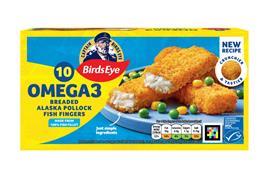Wow. What a week. En route from holiday in south-west France and following a motorway blowout (just two weeks after I’d had a full set of tyres fitted… grrr), I was actually looking forward to getting home at the weekend. Not only had I spent the previous week haemorrhaging money faster than I could drown my sorrows in vin rouge, I was rapidly tiring of a diet that consisted almost entirely of duck, beef and, umm, crisps.
And what do I arrive back to? News that Lehman Brothers has filed for bankruptcy, Merrill Lynch has been bought by Bank of America and HBoS by Lloyds TSB. Oh and the US economy is on the brink of collapse. Even my momentary relief at prices at the petrol pump was short-lived thanks to the record jump in oil prices on Monday. Time to switch off the news and find some cheerier TV fare. Which I certainly didn’t find on EastEnders, where poor Dot was laid low with food poisoning thanks to a dodgy prawn sarnie.
Fortunately, respite from the doom and gloom came in Valentine Warner’s What to Eat Now (8.30pm, BBC2, 22 September). Billing himself as “chef by trade, greedy by nature”, the amiable toff ambled around the English countryside hunting, fishing and cooking. He set about snagging himself some signal crayfish while armed with little more than a net and a salmon head, proclaiming there was “nothing better than grabbing something for free when it’s in its seasonal prime”. Admittedly you’d need a licence to catch crayfish and a rifle to bag yourself some wood pigeon, but these were details.
His point was that there is an abundance of food in the British countryside that most of us don’t even know exists. Green hazelnuts, watercress from a river’s edge, sloe berries and blackberries were “all free and there to be enjoyed”. It was aspirational stuff in The Good Life mould. Fittingly, Warner found himself entering a decidedly wobbly sloe gin and blackberry jelly into a dessert competition at the Women’s Institute. He came third, and not everyone looked impressed. But the programme was a pertinent reminder that even in these harshest of economic times, the best things in life sometimes are free.
Sign in to comment on this article
Not logged in before? Register for FREE guest access today.
You will be able to:
- Read more stories
- Receive daily newsletters
- Comment on stories
Advert












No comments yet